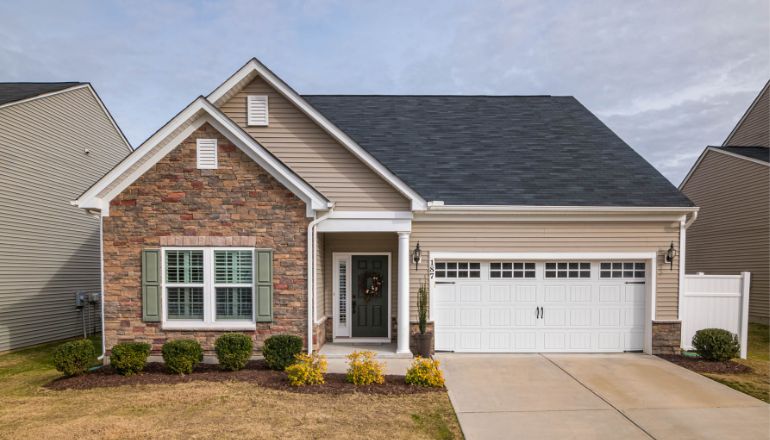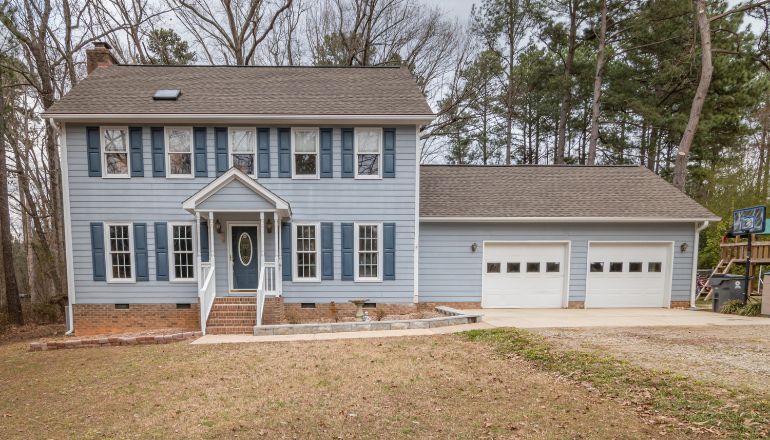What Does It Mean to Be House Poor?

You own a home, but every month feels like a financial battle. Bills pile up, savings shrink, and there’s little room for anything beyond your mortgage. This is the reality of being house poor a situation where housing costs consume so much of your income that financial stability becomes a struggle. But what is house poor, exactly, and how can you avoid it? Let’s break it down.
Understanding the Concept of Being House Poor
Owning a home is often seen as a sign of financial success, but if most of your income goes toward housing costs, it can quickly become a burden rather than a blessing.
Definition and Meaning
Being “house poor” means spending a significant portion of your income on housing costs mortgage payments, property taxes, insurance, maintenance, and utilities leaving little room for other essential expenses or savings. While you may own a home, financial strain can make it difficult to afford daily necessities, save for the future, or handle unexpected costs.
How It Happens
Several factors can lead to being house poor, including:
- Overextending on a mortgage – Buying a home that stretches your budget too thin.
- Unexpected expenses – Rising property taxes, higher insurance premiums, or major repairs.
- Job loss or income reduction – A sudden financial shift making payments harder to manage.
- Lifestyle inflation – Prioritizing a bigger home over financial flexibility.
Even homeowners with steady incomes can find themselves house poor if they underestimate long-term costs or fail to plan for financial fluctuations.
Signs That You Are House Poor
Even if you can afford your mortgage payments, other financial pressures may indicate that your home is costing you more than it should. Here are some key signs that you might be house poor.
Struggling with Monthly Expenses
If paying for utilities, groceries, or other essentials feels like a constant challenge, your housing costs may be taking up too much of your income. When a large portion of your budget goes to your home, it can leave little flexibility for necessary expenses or unexpected bills.
No Savings Due to High Mortgage Payments
A major red flag of being house poor is having little to no savings because your mortgage payments consume most of your earnings. If you’re unable to build an emergency fund or contribute to retirement, your financial stability could be at risk.
Living Paycheck to Paycheck
When most of your income is tied up in housing costs, you may find yourself relying on every paycheck just to stay afloat. This makes it difficult to handle emergencies, invest in future goals, or enjoy financial freedom.
Causes of Being House Poor
Many homeowners find themselves house poor due to financial miscalculations or changing economic conditions. Here are some of the most common reasons why it happens.
Buying More House Than You Can Afford
One of the biggest causes of being house poor is purchasing a home that stretches your budget too thin. Many buyers focus on qualifying for the highest possible loan rather than ensuring they have enough left over for savings, emergencies, and everyday expenses.
Underestimating Homeownership Costs
Beyond the mortgage payment, homeownership comes with hidden costs property taxes, insurance, maintenance, repairs, and HOA fees. Failing to account for these expenses can lead to financial strain, especially when unexpected costs arise.
Rising Interest Rates and Unexpected Expenses
Fluctuating interest rates can increase monthly mortgage payments, especially for those with adjustable-rate loans. Additionally, unexpected expenses such as major repairs, medical bills, or job loss can make it even harder to keep up with housing costs.
How to Avoid Becoming House Poor
Understanding what is house poor and how it happens is the first step to protecting your financial well-being. Fortunately, there are ways to avoid this situation and ensure your home remains a smart investment rather than a financial burden.
Setting a Realistic Home Budget
Before purchasing a home, determine how much you can comfortably afford not just what lenders approve you for. A general rule is to keep housing costs below 28-30% of your gross income. Consider all expenses, including taxes, insurance, and maintenance, to avoid financial strain.
Emergency Funds and Smart Financial Planning
Having a strong emergency fund can prevent you from becoming house poor when unexpected costs arise. Aim to save at least three to six months’ worth of expenses to cover mortgage payments, repairs, or income loss. Additionally, prioritize financial goals like retirement savings and debt reduction.
Downsizing or Refinancing Options
If your home is putting too much pressure on your budget, consider downsizing to a more affordable property or refinancing to secure a lower interest rate. In some cases, exploring alternative real estate opportunities such as Are Preconstruction Homes a Good Investment? can help you make a more strategic financial decision.
Conclusion: Finding Financial Stability in Homeownership
Being house poor can turn homeownership into a financial struggle rather than a rewarding investment. The key to stability is buying within your means, planning for unexpected costs, and maintaining a strong financial cushion. If you’re exploring smarter real estate options, pre-constructions in Toronto can offer potential savings and long-term value. Careful planning ensures your home supports your financial future instead of holding you back.














